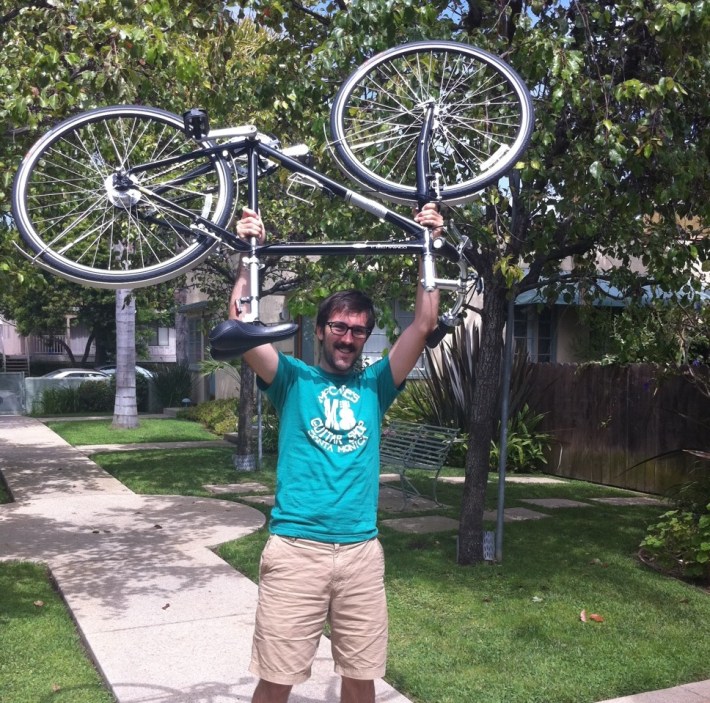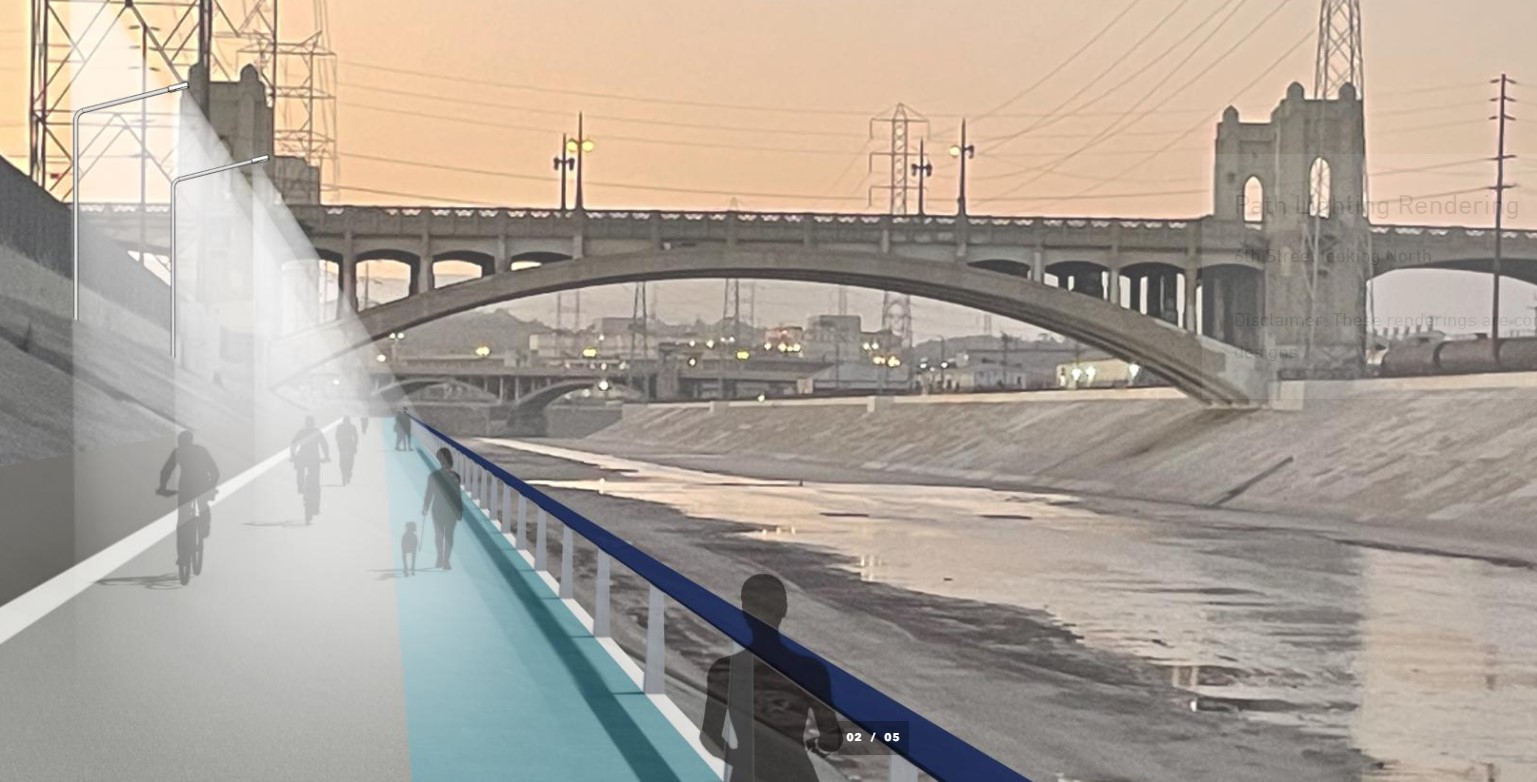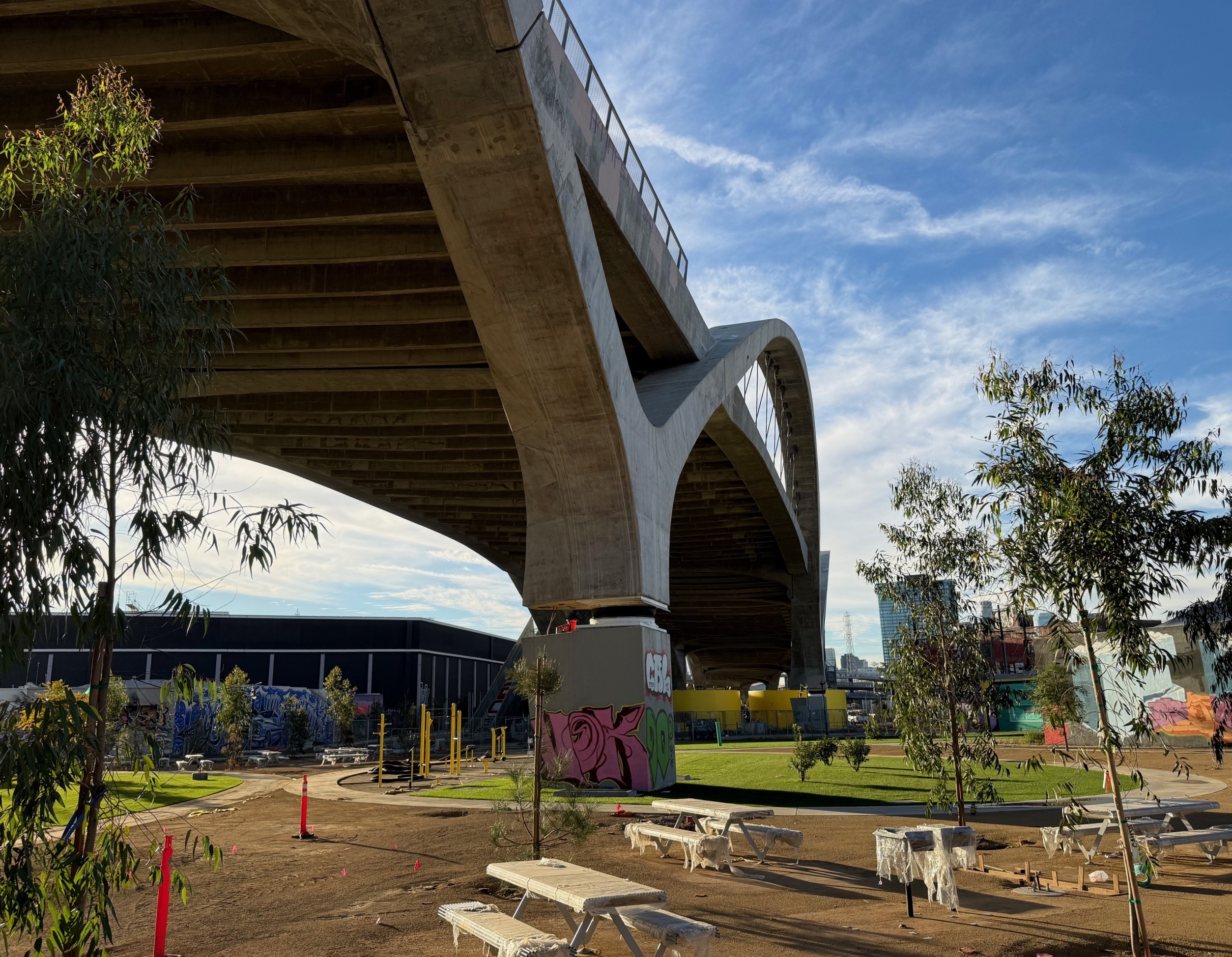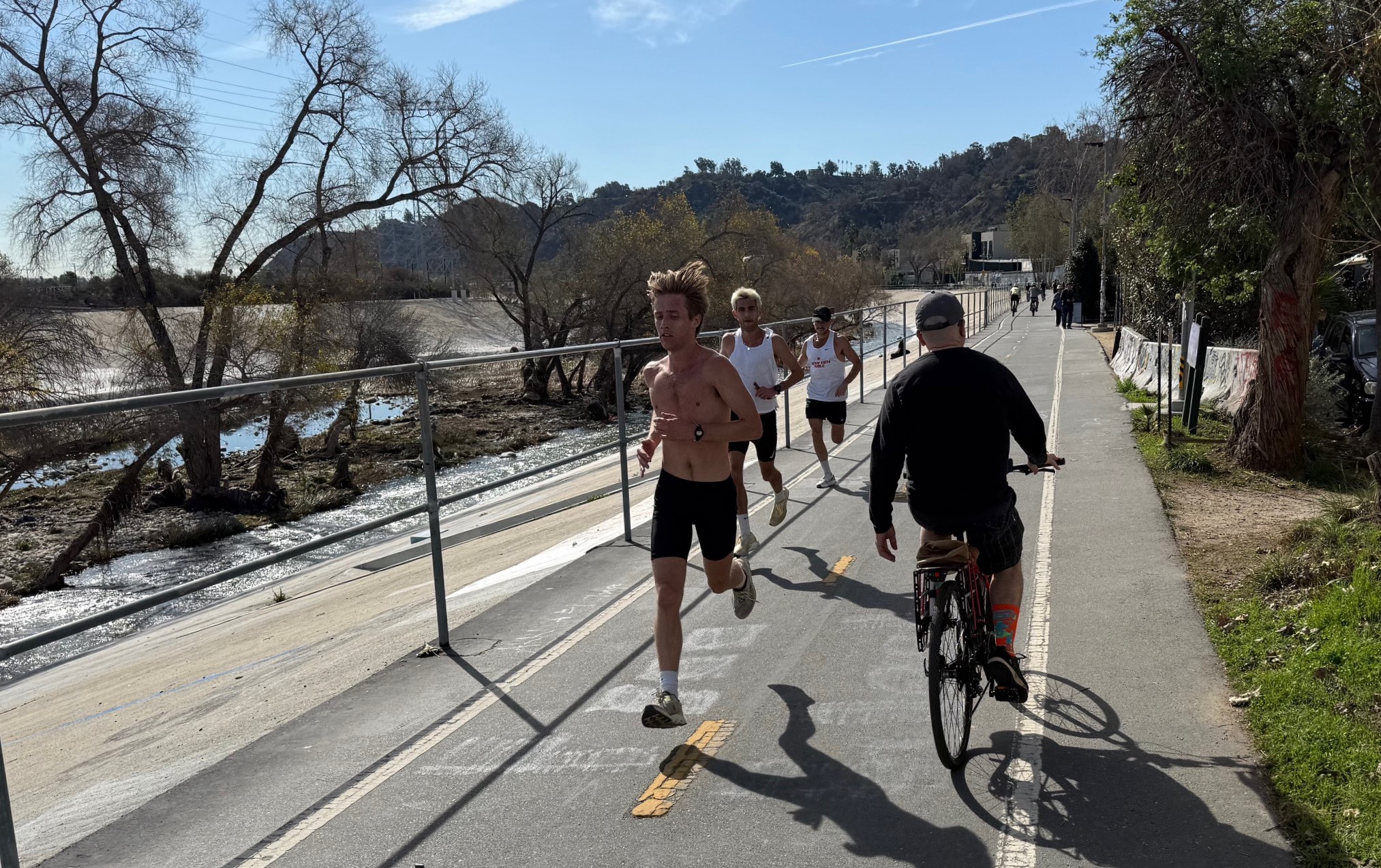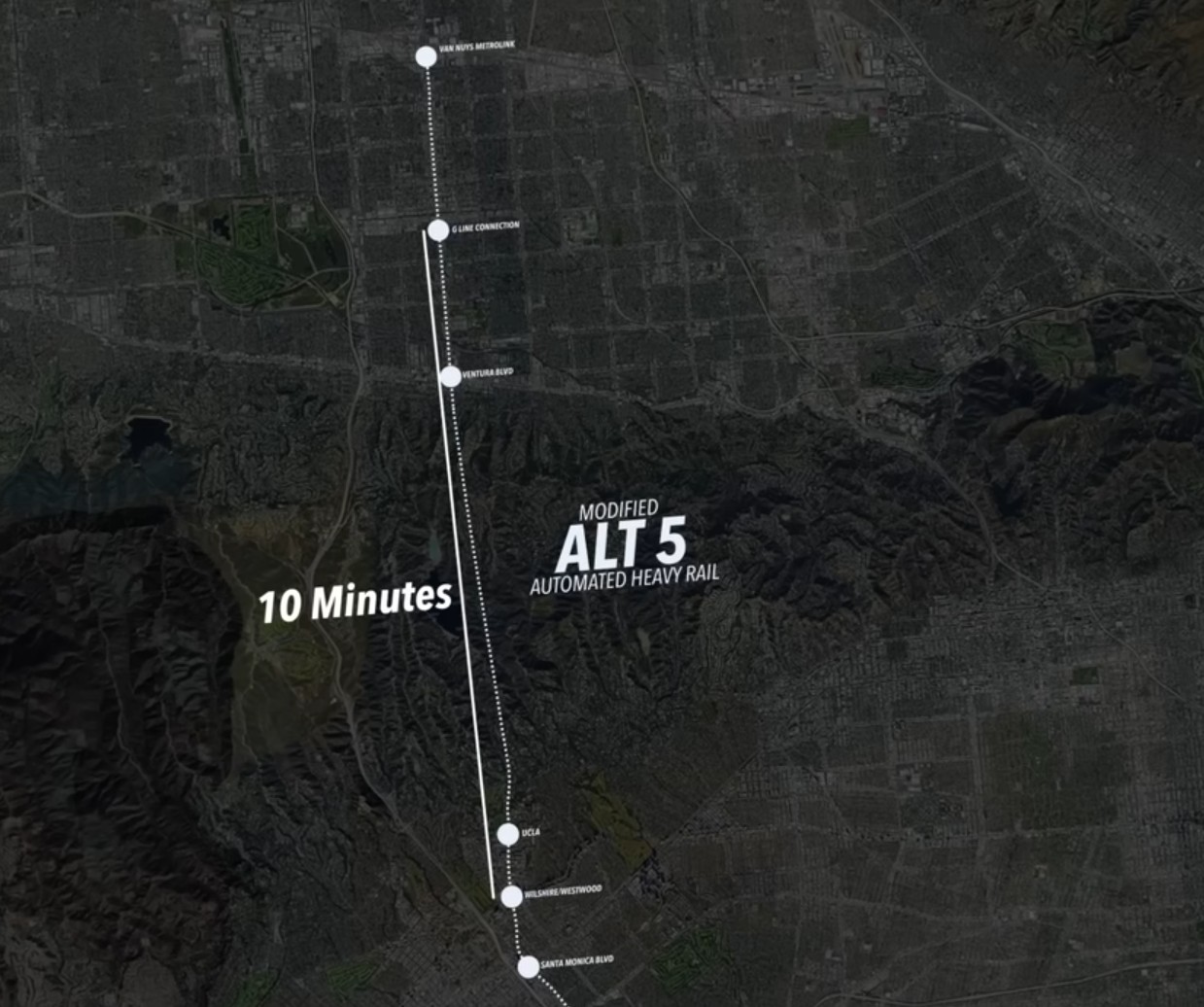Editor's Note: On Wednesday, the Daily News published an editorial that acknowledged that riding a bicycle in Los Angeles is dangerous and that cyclists are harassed on the road, but that Los Angeles' recently passed anti-harassment ordinance was a "missed opportunity to create more harmony on our roads." Carter Rubin responded in their comments section, and expands on those views below.
Yesterday morning, Ted Rogers (aka BikinginLA) pointed me to the L.A. Daily News editorial, "Backing bikers -- City Council missed an opportunity to create more harmony on roads."
His tweet rang out, "Unbelievable, L.A. Daily News equates rider running a stop sign with a driver threatening a rider's life." Indeed, the editorial board drew that unfortunate parallel and took some other missteps that I think should have some light shined on it.
After all, as biking becomes a more popular way to travel around L.A., there are inevitably going to be more debates about how to use the limited real estate of our public city streets. So, as I sipped my morning coffee at Unurban Café in Santa Monica, I shot off the following criticisms in the story's comments section. I thought it was uncommonly coherent for me at 8 a.m., so I'm posting it below:
Dear LADN editorial board,
I have three criticisms about this "Backing Bikers" editorial that I'd like to share with you. I hope you consider these criticisms in future coverage of transportation issues.
1) [The editorial] falsely divides people into two diametrically opposed groups -- bikers and drivers -- as if that were some kind of fundamental human trait. Most people are both drivers and bike riders depending on the day of the week and the needs of their travel.
This editorial lazily differentiates the two with a broad brush, instead of talking about the needs of Angelenos depending on how they're traveling on a given trip. By car or bike, we all need to be more responsible road users out there, with extra deference to when we're driving because, let's be honest, we're basically amateurs out there piloting deadly weapons.
2) It assumes that the criminal anti-harassment laws already on the books were enforceable. What prompted this legislation was the fact that countless Angelenos were left dead, injured or scared for their life because of harassment -- and that they had no recourse for justice. LAPD wasn't interested in investigating cases and the DA's office wasn't prosecuting because the burden of proof in criminal courts was so high, such that only the most blatant Christopher Thompson style, non-hit-and-run vehicle assaults were ever prosecuted.
Rosendahl's law gives harassed bicyclists an avenue for justice by providing people who are harassed while riding a bike access to civil courts to obtain damages for their injuries.
3) And lastly, it creates a false equivalence between violent, anti-social acts against another human being (harassment) and violations of the vehicle code (blowing a stop sign). I personally wish that everyone -- people in cars and on bikes -- would follow the rules of the road more closely, but mentioning it in this article is only a distraction that serves to further pit bikers vs. drivers. Grouping people by how they travel at any given time is probably the least meaningful way to distinguish people in this city.
Sincerely,
Carter Rubin
Board member, LA Streetsblog
As I mention a couple times above, what bothered me most about the editorial was the way the authors lumped together all bike riders and all drivers. It jogged my memory to a post I had read on Jarrett Walker's blog, Human Transit, in which he explains the concept of "fundamental attribution error." The key quote comes from Michael Druker:
The fundamental attribution error leads us to interpret the behavior of others as reflecting something inherent about those people, more than is warranted. However, the language we use plays a role in that judgment as well. Our labels often describe who people are instead of what they’re doing, e.g. pedestrians, cyclists, transit users, or drivers. Each one of those terms gives us a category to which those people belong, making it easier to attribute their actions as reflecting some property of members of that category. That, in turn, makes it more difficult to progress towards a multimodal and sustainable transportation system.
[...]
Sometimes we’re in cars, sometimes we’re on transit, sometimes we’re on bikes, and sometimes we’re on foot. But we’re all people, and our perspectives are much more similar than the facile modal categories lead us to believe.
The point is pretty clearly made when you try to parse what the Daily News means when it refers to "bicyclists." Are they talking about hipsters on fixies, lycra-clad racers, "invisible cyclists," or the workaday folks who just want to dust off their old ten-speed or mountain bike? Even those sub-categories are nearly useless approximations of what people value and who they are. And what about "drivers?" That describes how nearly 80 percent of Angelenos typically commute [PDF], but says little about what they want for their communities.
Ultimately, I welcome the Daily News' interest in discussing transportation issues. With the city's new bike plan and the ramping up of Measure R projects, we are at a critical point in Los Angeles' transformation; there's a lot that needs to be discussed. However, I strongly encourage the editorial board to avoid the easy trick of using one's mode of transportation -- on any given trip -- as a proxy for who they are. Because at the end of the day, we're all just people trying to get from here to there as safely and conveniently as possible and with respect from our fellow road users.
Our discussions about transportation should help us sustain those core values, not separate us based on whether one has his or her backside momentarily planted in a bus bench, bucket seat or bike saddle -- or when on foot, in no seat at all. Ironically, by perpetuating the myth of bikers vs. drivers, the Daily News' editorial writers actually work against their stated intention of creating more harmony on the roads.
